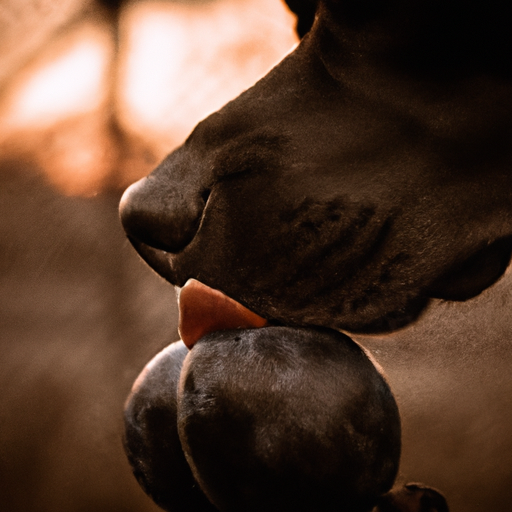Why Are Grapes Bad For Dogs?
You’ve probably heard that you should never feed your dog grapes. But have you ever wondered why that is? “Why Are Grapes Bad For Dogs” aims to answer that question. This arresting article provides both the science behind the toxic effects of grapes on dogs and practical advice for dog owners. It’s a must-read for any pet parent who wants to keep their furry friends healthy and safe.
Understanding Grapes and Dogs
You might not think twice before munching on a handful of grapes but did you know they are a no-no for your canine companion? That’s right, grapes are highly toxic to dogs. Therefore, it’s vital to understand what grapes are and the importance of a dog’s general fruit intake.
What are grapes?
Grapes are a type of berry fruit that grows on the flowering plant genus Vitis. They come in various colors and forms including red, green, and purple grapes, and their dried form, called raisins, which are equally harmful to dogs.
General fruit intake of dogs
Generally speaking, many fruits are safe for dogs to eat, and some can even be beneficial to their health. Apples, bananas, and blueberries are among the fruits that are safe for dogs. However, not every fruit that’s safe for human consumption is okay for dogs, and grapes are a glaring example of this.
The Harmful Constituents of Grapes
As surprising as it may seem, a seemingly harmless fruit like grapes can be lethal to your furry friend. But what makes grapes so harmful to dogs?
Unknown Toxic Substance
Interestingly, the exact substance in grapes that makes them toxic to dogs remains a mystery. What we do know is that their toxicity is not related to pesticides or heavy metals. Both commercially grown and homegrown grapes have caused toxic reactions in dogs.
Potential triggers and irritants
While the toxic substance is unidentified, both the flesh and skin of grapes can cause toxic reactions. This would suggest that the irritant is found throughout the grape, not just in one part.

Health Effects of Grapes on Dogs
Once ingested by a dog, grapes can cause severe health complications, and in worst-case scenarios, even death.
Acute Kidney Injury
Grape toxicity can lead to acute kidney injury or complete renal failure in dogs. This happens when harmful substances in grapes damage kidney cells, which hinders the kidneys’ ability to cleanse the blood of waste products.
Gastrointestinal Upset
Dogs may also experience considerable gastrointestinal distress after grape ingestion. This may include vomiting, diarrhea, and abdominal pain, all of which can leave your dog dehydrated and weak.
Anorexia
Anorexia or loss of appetite is another side effect of grape toxicity in dogs. Dogs can lose their appetite due to the discomfort caused by gastrointestinal distress.
Signs and Symptoms of Grape Toxicity in Dogs
Recognizing grape toxicity in your dog early on is crucial to administering effective treatment and preventing life-threatening health complications.
Early Stages Symptoms
In the early stages, dogs may show symptoms like hyperactivity or restlessness due to abdominal pain. Vomiting and diarrhea often follow, which may contain grape or raisin pieces.
Advanced Stages Symptoms
If grape toxicity advances, your dog may show signs of dehydration, lethargy, or reduced urine production. In the most severe cases, dogs may fall into a coma or experience sudden death.
Recognizable Behavioral Changes
Changes in behavior, such as increased aggression, hiding, or unusual quietness, are other indications that your dog may be suffering from grape toxicity.

Diagnosing Grape Toxicity
Grape toxicity in dogs is typically diagnosed based on a combination of clinical signs and a history of grape or raisin ingestion.
Physical Examination and Laboratory Tests
Your veterinarian may conduct a physical exam, blood tests, and urinalysis to assess the extent of kidney damage.
Historical Analysis and Reports
Thorough questioning about your dog’s recent activities and diet may also be used to confirm grape toxicity, especially if your dog has vomited pieces of grapes.
Differential Diagnosis
Differential diagnosis may be used to rule out other conditions that can cause similar symptoms, such as a urinary tract infection or other types of food poisoning.
Treatment Methods for Grape Toxicity
If your dog has ingested grapes, immediate treatment is necessary to prevent renal failure.
Inducing Vomiting
Inducing vomiting may be recommended if the ingestion has occurred within the past two hours. This can help expel the grapes before they’re fully digested.
Activated Charcoal
Veterinarians may also administrate activated charcoal to prevent the absorption of the toxin in the stomach and intestines.
Intravenous Fluid Therapy
Administering intravenous fluids can help maintain hydration and stimulate urine production, aiding the kidneys in flushing out toxins.
Dialysis and Urine Alkalinization
In severe cases, dialysis may be needed to support the kidneys, and urine alkalinization can prevent further kidney damage.
Preventing Grape Ingestion
The most effective way to prevent grape toxicity is to prevent dogs from ingesting grapes or raisins.
Educating Family Members and Visitors
Educate everyone in your household, especially children, about the dangers of grapes and raisins to dogs. Make sure visitors also know not to share their food with your dog.
Proper Storage of Grapes and Raisins
Store grapes and raisins in high, secure locations where your dog can’t reach them. Keep in mind dogs can be surprisingly clever when it comes to getting food, so make sure these are well out of their reach.
Training Your Dog
Train your dog to understand the “leave it” command, which can be useful if they happen to come across grapes or raisins unexpectedly.
Myths and Misconceptions About Grapes and Dogs
There are a few misconceptions that can make pet owners underestimate the danger of grapes to dogs.
Small Quantities are Safe
Some people believe that small quantities of grapes are harmless to dogs. This is utterly false. Even a single grape could potentially cause acute kidney injury to a small dog.
Only Certain Breeds are Affected
Another myth is that grape toxicity only affects certain breeds. Grape toxicity can occur in dogs of all breeds and sizes.
Cooking or Processing Grapes Makes Them Safe
Contrary to the belief, cooking or processing grapes does not eliminate their toxicity. Raisins, which are dried grapes, are just as toxic as fresh grapes and can cause the same health issues.
Alternatives to Grapes for Dogs
There are safer alternatives to grapes that can satisfy your dog’s craving for sweet treats.
Safe Fruits for Dogs
Some fruits like apples, bananas, and blueberries are safe and nutritious for dogs. But remember to give them in moderation and to remove any seeds or pits.
Homemade Dog Treats
You can make homemade dog treats using ingredients like sweet potatoes, carrots, and pumpkin.
Commercial Dog Treats
Commercial dog treats are always an option, but remember to choose those that are free of artificial additives and high in nutritional content.
Rehabilitation and Care After Grape Toxicity
If your dog has survived grape toxicity, ongoing care is crucial to help them recover completely and to prevent any long-term complications.
Post-treatment Monitoring
Keep a close eye on your dog’s behavior, urine output, and appetite after treatment. Regular vet checks may be necessary to monitor the condition of their kidneys.
Dietary Adjustments
A diet low in protein, phosphorus, and sodium might be recommended to ease the workload of the kidneys.
Physical Therapy and Support
Physical therapy can help your dog regain strength and mobility. Emotional support is also vital during recovery as your dog may be feeling unwell and scared.
Remember, when it comes to grapes and dogs, there’s no safe amount or preparation method. Always make sure grapes are stored securely, and if your dog ingests a grape, seek immediate veterinary care.







